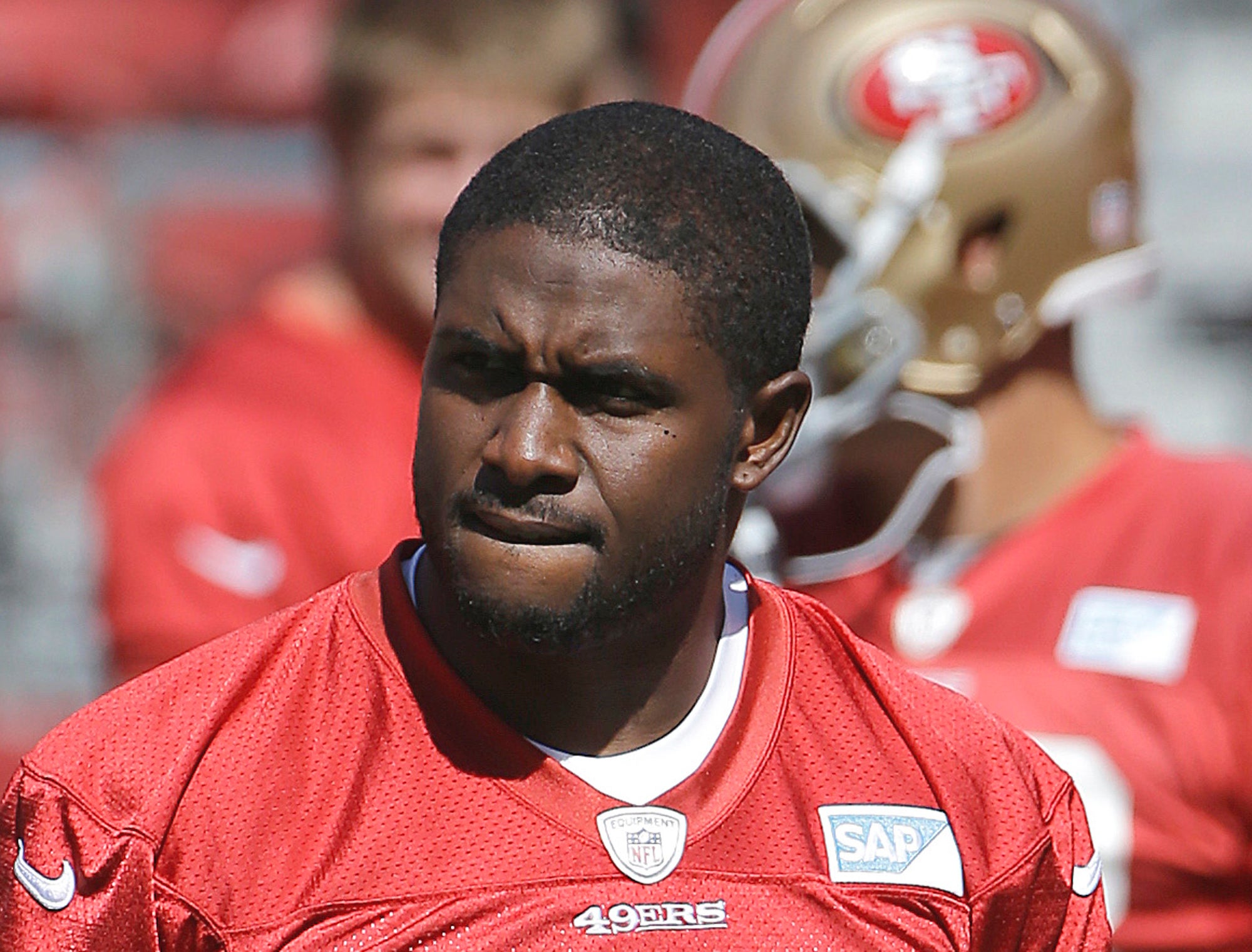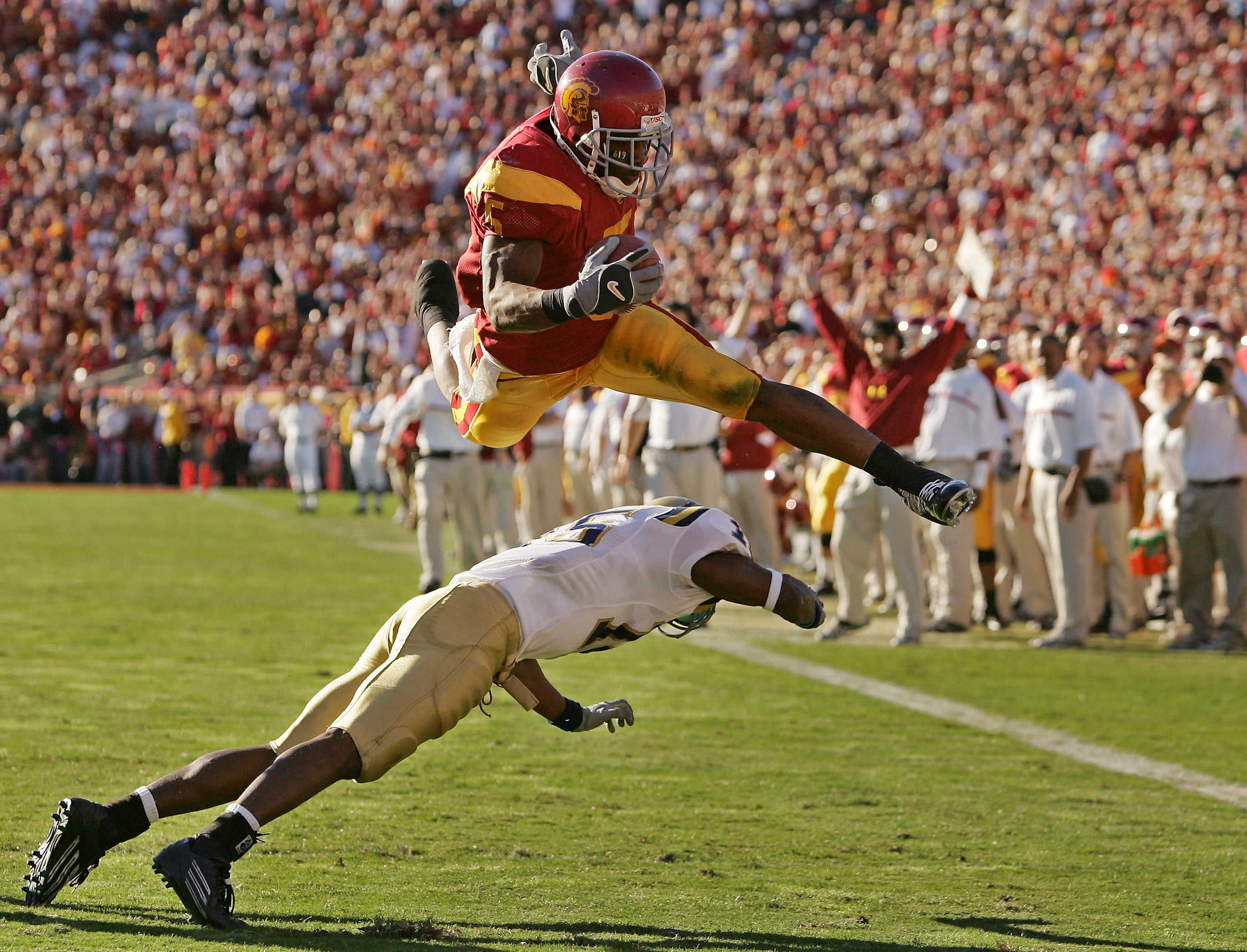Ben Crump slams NCAA for ‘plantation mentality’ in dispute between league and football legend Reggie Bush
Dispute with college football league stems from meaning of prohibition on ‘pay-for-play’ deals
Your support helps us to tell the story
From reproductive rights to climate change to Big Tech, The Independent is on the ground when the story is developing. Whether it's investigating the financials of Elon Musk's pro-Trump PAC or producing our latest documentary, 'The A Word', which shines a light on the American women fighting for reproductive rights, we know how important it is to parse out the facts from the messaging.
At such a critical moment in US history, we need reporters on the ground. Your donation allows us to keep sending journalists to speak to both sides of the story.
The Independent is trusted by Americans across the entire political spectrum. And unlike many other quality news outlets, we choose not to lock Americans out of our reporting and analysis with paywalls. We believe quality journalism should be available to everyone, paid for by those who can afford it.
Your support makes all the difference.Reggie Bush, the Super Bowl-winning NFL running back and former University of Southern California star, accused the National Collegiate Athletic Association (NCAA) of wrongly preventing him from reinstating his Heisman Trophy win, a move his lawyer compared to a “plantation mentality” that treats college football stars like “servants.”
“It’s past time for Reggie Bush’s rightful place in college football history to be restored! Call on the NCAA to reinstate Reggie’s collegiate records and legacy — stand up for justice and fairness, and honor true sportsmanship!” his attorney, civil rights leader Ben Crump, wrote on X on Thursday.
“The NCAA must change its plantation mentality, treating collegiate student athletes like indentured servants,” he added.
Mr Bush, once one of the best college football players in the country, sued the NCAA in Indiana court on Wednesday, claiming the league defamed him by alleging he accepted prohibited “pay-for-play” benefits during his USC career.
“I’ve got dreams of coming back in this stadium and running out of that tunnel with the football team,” Mr Bush said on Wednesday at a press conference at the Los Angeles Coliseum, a stadium decorated where he played his games at USC that’s decorated with tributes to the school’s league MVP winners. “I’ve got dreams of walking back in here and seeing my jersey and my banner right down there next to the rest of the Heisman Trophy winners. But I can’t rightfully do that without my Heisman Trophy.”
The NCAA declined to comment when contacted by The Independent.
In 2010, the NCAA accused Mr Bush, who was by then in the NFL, of accepting improper benefits from a would-be sports agent while he was still a college athlete.

The perks included cash, travel expenses, and a home in San Diego where his parents lived rent-free for more than a year, according to ESPN.
As a punishment, the NCAA banned him from bowl games for two years, vacated 14 victories, and required him to “disassociate” from USC for 10 years.
In the midst of the scandal, the running back voluntarily returned his 2005 league MVP Heisman Trophy.
Mr Bush, who is now an NFL commentator, went on to go pro in 2006 and make millions from professional contracts and endorsement deals.

In 2021, a new chapter in the saga began when the NCAA announced long-sought rule changes allowing student-athletes to profit off their name and likeness, opening the flood gates for top college players to earn millions from endorsement deals, social media accounts, autograph auctions, and other ventures.
With the rule change, the Heisman Trust said it looked “forward to welcoming (Bush) back to the Heisman family” if the NCAA restored his status.
At the time, however, the NCAA suggested Mr Bush’s actions as a player still would’ve been banned.
"Although college athletes can now receive benefits from their names, images and likenesses through activities like endorsements and appearances, NCAA rules still do not permit pay-for-play type arrangements," a spokesperson told media outlets like ESPN. "The NCAA infractions process exists to promote fairness in college sports. The rules that govern fair play are voted on, agreed to and expected to be upheld by all NCAA member schools."
Mr Bush insists that he never engaged in pay-for-play, a term commonly understood to mean receiving payments directly for playing on the field.
“Not only is it not true, but there is no evidence to even support that claim,” the running back said on Wednesday during his press conference. “It wasn’t even part of the initial NCAA investigation, so this is a new accusation as far as I’m concerned. That’s what this lawsuit is about. It’s about truth, getting the facts out and holding the NCAA accountable, which I think is maybe the first time in my memory that this has happened, someone holding them accountable for their actions and what they’ve done in regards to me and other players as well.”
Players, and eventually state legislators, pushed for years to allow NCAA athletes to profit from their achievements during their time as student athletes, arguing that top-level college leagues were billion-dollar businesses, where universities sold lucrative media rights and top coaches earned millions, but the talent driving the industry weren’t rewarded in the same way.



Join our commenting forum
Join thought-provoking conversations, follow other Independent readers and see their replies
0Comments